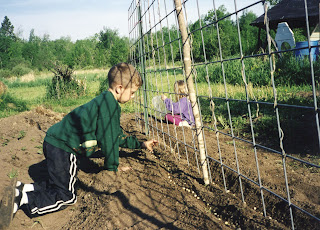David Heiller
The bees were first to welcome me
home from vacation last week. They were buzzing so loudly on Thursday morning
that I could hear them from 30 yards away.
The air around one hive was a
blizzard of bees. They were swarming; half the hive was following the queen in
search of a new home. Jeez, leave for a week and a queen gets upset at you. The
nerve! One angry chap even stung me by my left eye, which swelled shut long
enough for Cindy to take this photo.
 |
| The standing head for David's column looked a little different that week. |
An hour
later, I returned to the hive. All was quiet again. I walked through the field
and spotted a ball of bees hanging from the limb of a willow tree. That’s where
the queen had landed to get her bearings. What a sight. There’s nothing as
exciting as watching a swarm of bees, 40,000 strong, the size of your thigh,
all huddled on top of one another, shimmering, humming, moving as one.
(It’s also exciting to a
penny-pinching German because you get a free bee hive. The old hive will “make”
a new queen to replace the restless one.)
| A "borrowed" photo of someone doing what David had to do to get that "free" hive. |
I got another hive box with some
frames and old honey from a nearby beekeeper, Albert Chada. He figured they
couldn’t resist a free lunch, and he was right. I cut the tree limb, shook the
bees into their new home, put on the hive cover, and smiled. Yes, it was good
to be home. A day later, and I would have missed all this.
It’s funny how such simple things
like that can make a person feel “at home.” Like after I filled all the bird feeders,
and the first goldfinch landed right outside the window as I washed dishes.
What a great sight. Or when the first humming bird zoomed in for fresh nectar.
I could watch his tongue turn into a tiny straw, the size of a needle, and suck
up the red liquid, while he hung in the air like a puppet on a string.
Or working in the garden all day,
pulling a week’s worth of lamb’s quarter and mint and other nameless weeds.
They came out easily from the rain-softened, sun-warmed soil. It was a simple
joy, working with Cindy, visiting about
this and that, then finishing the last bed and walking together to
admire our work and the garden’s budding bounty.
Catching garter snakes, picking up
rocks, heck, even mowing the lawn, it all felt good because we were home.
You see things in a fresh light when
you are gone for a time. Of course, you see some things you’d like to forget.
Like the woodpile, an ugly collection of logs, boards, and lumber scraps, that
needs to be cut and split and stacked. There’s that hole in the linoleum as you
come in the door, and the walls that need painting, and the concrete floor that
needs carpeting, and...
You see these things every day, and
you get used to them. After an absence, you see them and wince and make a
pledge to fix them just as soon as possible. Right.
Forget about them for now. “Coming
home” is bigger than that. “Coming home” means many things to many people, but
most definitely it means happiness and contentment and satisfaction.
It’s a good enough reason in itself
for a fine vacation, which we sure had. But that’s another story.











